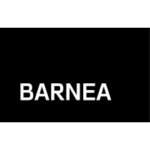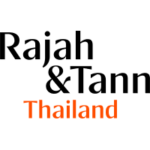-
What has been your jurisdiction’s historical level of interaction with the WTO (e.g. membership date for the GATT/WTO, contribution to initiatives, hosting of Ministerials, trade policy reviews)?
France has been a member of the General Agreement on Tariffs and Trade (hereinafter “GATT”) since 1st January 1948, and a Word Trade Organisation (hereinafter “WTO”) member since 1st January 1995. In 2018, France hosted the conference: “A WTO fit for the 21st century”. France is deeply involved in the WTO policy. For instance, France contributed 6 million euro to help developing economies deepen trade expertise over the period 2024-2026.
-
Are there any WTO agreements to which your jurisdiction is not party (e.g. Government Procurement Agreement)? Is your jurisdiction seeking to accede to these agreements?
France signed all WTO’s agreements to date.
-
Is your jurisdiction participating in any ongoing WTO negotiations (e.g. E-Commerce Joint Initiative) and what has been its role?
It is important to recall that, pursuant to Article 207 of the Treaty on the functioning of the European Union (hereinafter the “EU” or the “Union”) members, as France, delegated a part of their sovereign powers. For instance, EU has an exclusive competence on European Trade policy and the EU negotiates all trade agreements on behalf of EU Member States.
In this regard, France as part of the EU, is part of a joint initiative to start explanatory work regarding future negotiations on trade-related aspects for e-commerce. The aim of the joint initiative is to conclude most of the negotiations by the end of 2024.
EU is also part of the Informal Working Group on Micro, Small and Medium-sized Enterprises (hereinafter “MSMEs”).EU also participates to Trade and Environmental Sustainability Structured Discussions (hereinafter “TESSD”).
EU is also part of the friends of ambition group (NAMA), which aims to maximize tariff reductions and achieve real market access in the members’ group zone.
-
Has your jurisdiction engaged in the WTO dispute settlement system in the past 5 years? If so, in which disputes and in which capacity (as a party to a dispute or as a third party)?
According to the official report on the EU’s active dispute settlement cases, as of 7 February 2023, France is a party in five pending WTO disputes and more specifically all on the defensive side. These cases involve the United-States and Malaysia:
-
Has your jurisdiction expressed any views on reform of the WTO, in particular, the dispute settlement system and the Appellate Body?
According to Article 17 of the Understanding on Rules and Procedures Governing the Settlement of Disputes, the WTO’s appellant body is composed by 7 members appointed unanimously by WTO members. However, since Barack Obama’s mandate, United-States blocked the renewal of the Appellate Body’s members. The last member’s mandate ended in November 2020. Thus, if a WTO member wants to make an appeal, this appeal will be useless because there are no Appellate Body members anymore. The term of the last sitting Appellate Body member expired on 30 November 2020.
In order to solve this problem, EU tried to find solutions. For instance, EU suggested to reduce the duration of procedures and the number of pages of panel reports or decide that body’s decisions of appeal cannot be considered as precedent.
Pending a resolution of the situation, EU created, with some WTO members, a Multi-Party Interim Appeal Arbitration Arrangement (hereinafter “MPIA”). The MPIA became effective on the 30th of April 2020. Its aim is to create a temporary appellate body to ensure that members benefit from a functioning appellant system. Since the 16th of May, 2024, 50 WTO members were involved in the MPIA, such as: Australia, Canada, China and Singapore.
-
What are the key bilateral and/or regional free trade agreements (FTAs) in force for your jurisdiction and from which dates did they enter into force?
EU concluded Free Trade Agreements (hereinafter “FTA”) with countries located on all continents. Among all these agreements, some are very beneficial to France. First of all, with Canada, EU signed the Comprehensive Economic and Trade Agreement (hereinafter “CETA”). This agreement entered into force on 21st September 2017. The French rate of use of CETA for export was 63% in 2022 which is higher than the European average (60%). On March 21, 2024, French senators voted against CETA, jeopardizing the ratification of this agreement, which the government supports. The agreement is strongly criticized by French livestock farmers, who denounce imports of meat at a much lower cost than their own, and produced using less stringent methods than those to which they are subject.
The treaty was first adopted by the French National Assembly in July 2019. To date, the text has not been submitted by the government to the National Assembly for a new decision. However, even if the French National Assembly were to reject the Treaty, it could continue to apply provisionally. Indeed, according to a declaration made by the EU Council in 2016, the government of a Member State must officially notify its parliament’s rejection, but this notification is not mandatory.
In Asia, there are: the EU-Japan Economic Partnership Agreement which entered into force on 1st February 2019 and the EU-South Korea Free Trade Agreement which entered into force on 1st July 2011. These two agreements have a strong impact on the French market. Indeed, the FTA with Japan enables French companies to export more wine, luxury products, pharmaceutical products and dairy products. Regarding the FTA with South Korea, in 2022, France exported for €6 billion, it is the highest level since the entry into force of the FTA in 2011.
In Europe, EU concluded an FTA with the United Kingdom: EU-UK Trade and Cooperation Agreement, which entered into force on 1 May 2021. Since the agreement, French exports have risen to 69 billion euros (47 billion euros in goods and 22 billion euros in services).
The United Kingdom has decided to reintroduce safety and security formalities on entry to its territory. The measure was due to take effect on October 31 but has been postponed until January 31, 2025. From this date, an entry summary declaration will be required for goods imported from the EU and other territories for which a declaration was not required before January 1, 2021.
Finally, on May 1st, 2024, the European Union’s last free trade agreement with New Zealand came into force. The European Union has strong historical and cultural ties with New Zealand. Thanks to this free trade agreement, bilateral trade is set to increase by up to 30%, with annual EU exports likely to rise by up to 4.5 billion euros. EU investment in New Zealand could also increase by up to 80%. The agreement could save EU companies 140 million euros a year in export duties. Alongside the elimination of customs duties on EU exports, the agreement specifies that more than 2,000 food and drink products with an EU geographical indication are protected.
-
Is your jurisdiction currently negotiating any FTAs (or signed any FTAs that have not yet entered into force) and, if any, with which jurisdictions? What are your jurisdiction’s priorities in those negotiations (e.g. consolidating critical mineral supply chains, increasing trade in financial services, etc.)? For both FTAs under negotiation and signed FTAs, when are they expected to enter into force?
It is important to recall that the EU is negotiating on behalf of EU Members States. EU is currently negotiating numerous FTAs with third countries, like India, Australia, Indonesia, Thailand and Philippines.
In particular, the EU and Australia started to negotiate an FTA in June 2018. Australia and the EU started again talks at the end of August 2023. The two parties did not manage to sign an agreement in July because, they had some disagreements over access for Australian agricultural products to EU markets. In addition, one of the blocking issues is the EU desire to protect certain geographical indications, for example: “Roquefort” should be reserved for sheep’s milk cheeses made around the eponymous French village.
Finally, since 2022, the ratification process of the EU Mercosur FTA started again. However, on June 13th, 2023, the French national assembly considered that this agreement is not compatible with EU engagements regarding the fight against global warming, nor with the objective of food sovereignty. The French president also stated that he is against the conclusion of this agreement as long as some elements are not added, such as the protection of the environment. In 2024, European negotiations accelerated, but France continued to oppose the agreement, with strong public opposition.
-
Which five countries are the biggest trading partners for your jurisdiction in relation to each of exports and imports and which goods or services are particularly important to your jurisdiction’s external trade relationships?
According to the French foreign trade report 2024 and the website of France Diplomacy , Germany was the biggest trading partner of France in 2023, regarding importations and exportations (60,5 billion exportations and 71,4 billion of importations). For importations, the second place is for China (74,0 billion), the third place for Italie (71,3 billion), the fourth place for Spain (66,0 billion) and the last for the United-States of America (63,5 billion). Concerning exportations, the second place is for United-States of America (32,5,2 billion), the third one for Italy (32,2 billion), the fourth place for Belgium (30,9 billion) and the last one for Spain (30,8 billion).
The goods that are particularly important for France foreign trade are: aeronautics and space sector, chemistry, perfumes and cosmetics sector, agri-food sector and pharmaceutical sector. Regarding services: trade services, other services linked to companies, transport and travel.
-
What are the three most important domestic and three most important international developments that are likely to have the biggest impact on your jurisdiction’s trade profile and priorities?
For months now, the European Union and China have been locked in a trade war. This opposition has been sharply accentuated by the confirmation of application of substantial anti-dumping duties by the European Union against Chinese-made electric vehicles in October 2024. China responded by launching investigations against pork products, brandies and dairy products during 2024. The latter two are of particular concern to France, a major producer of Cognac and dairy products.
In June 2024, the European Member States elected new members to the European Parliament. The parliamentarians re-elected Madame Van der Leyen to head the European Commission for a second 5-year term. A new Commission was then chosen by the President. Maroš Šefčovič has been chosen as the new Commissioner for Trade and Economic Security
On November 6, 2024, Donald Trump was elected President of the United States. During his campaign, he had announced his intention to implement a protectionist policy with the application of significant customs duties on Chinese and European products. He announced an increase of 10 or 20% for European products and 60% for Chinese products.
Finally, at the domestic level there is also the plan “Green French Nation”, it is a response to the “Green Deal” at the EU level. Its aim is to find solutions to reduce climate warming. For example, in the framework of the “Green deal”, European Investment Bank and InvestEU invested €450 million in the construction of the AESC electric battery gigafactory in Douai (France). Thanks to this investment, the company will be able to provide batteries for electric vehicles.
To product batteries, raw materials are essential. As a response the Critical Raw Materials Act was set up and adopted by the Council in March 2024. This Act focus on ensure the independence of EU regarding some strategic raw materials (Arsenic, Helim, Coking Coal, Lithium, Nickel…). Indeed, for now, very dependent of importations and the use of this kind of materials will increase in the future.
Finally, following the European elections, President Emmanuel Macron dissolved the National Assembly. New elections were held, and a new government chosen. No party has a majority in the Assembly, so political decisions are perilous.
-
Has your jurisdiction taken any specific domestic measures to address sustainability issues in international supply chains, for example in relation to forced labour, human rights and environmental issues? Is it seeking to address these issues in any FTAs or other international agreements?
EU law requires certain large, medium and small companies to disclose information on the way they operate and manage social and environmental challenges under the Corporate Sustainability Reporting Directive. On December 7, 2023, France published in its official gazette Ordinance no. 2023-1142 of December 6, 2023 on the publication and certification of sustainability information and the environmental, social and corporate governance obligations of commercial companies transposing EU legislation. On December 31, Decree no. 2023-1394 was adopted to implement the ordinance.
There is also the Corporate Sustainability Due Diligence Directive, which will impose a broader due diligence duty, to prevent adverse human rights and environmental impacts in the company’s own operations and across their value chains. It means that, companies will have to be aware of their subsidiaries’ activities and any other companies which is part of the chain. From now, multinationals, as well as small and medium-sized businesses operating in risky sectors will have to comply with. The directive came into force on July 25th, 2024.
In September 2022, the European Commission proposed the Forced Labour Regulation. Its aim is to ban all products made by forced labour from the EU market. On March 23rd, 2024, European Parliament has given its final approval.
In this context, France signed two agreements: Private Employment Agencies Convention in 2015 and the Protocol of 2014 to the Forced Labour Convention in 2016.
The EU’s Carbon Border Adjustment Mechanism (CBAM) is the EU’s tool to put a fair price on the carbon emitted during the production of carbon intensive goods that are entering the EU, and to encourage cleaner industrial production in non-EU countries. By confirming that a price has been paid for the embedded carbon emissions generated in the production of certain goods imported into the EU, the CBAM will ensure the carbon price of imports is equivalent to the carbon price of domestic production, and that the EU’s climate objectives are not undermined. The CBAM is designed to be compatible with WTO-rules.
CBAM will apply in its definitive regime from 2026, while the current transitional phase lasts between 2023 and 2025. This gradual introduction of the CBAM is aligned with the phase-out of the allocation of free allowances under the EU Emissions Trading System (ETS) to support the decarbonisation of EU industry.
The Regulation (EU) 2023/1112 aims to prohibit the placing on the market or export from the European market of products that have contributed to deforestation or forest degradation after 31 December 2020. The scope of the text covers seven commodities: coffee, cocoa, rubber, palm oil, soy, beef and wood, as well as some derived products such as leather, charcoal, printed paper. The products concerned are listed in Annex 1 of the RDUE. The Regulation requires the undertakings concerned (operators and traders as defined in Article 2 of the Regulation) to ensure that the products they export, place on the market or make available on the market are related to zero or negligible risk of deforestation. In particular, they will have to geolocate the origin of the products up to the production plots.
The Commission has published a new Guidance document, and has further proposed giving concerned parties additional time to prepare. If approved this proposal would make the law applicable on 30 December 2025 for large and medium companies and 30 June 2026 for micro- and small enterprises.
Regarding FTA, EU wants to add their vision of sustainable development to their new FTAs. Since few years, the new FTA are called “FTA of a new generation”: they add sustainable development aspects. For instance, France is against the current EU-Mercosur agreement because there is a lack of measures to protect the environment.
-
Is your jurisdiction taking any specific domestic measures to promote near-shoring/on-shoring for strategic goods (i.e. domestic subsidies, import tariffs, or export restrictions)? Is it seeking to address these issues in any FTAs or other international agreements?
France is trying to reduce the supply chain spreading. Indeed, in the “Recovery Plan”, besides the “Ecological” program 362, there is the competitivity program 363. The aim of this plan is to ensure its independence by having a better control on the production of strategic industries. Five sectors are targeted: agri-food, health, electronics, essential industrial inputs and 5G telecommunications. In order to achieve this goal, the French government allowed €27.4 million in 2024.
France also seeks to attract investors. For instance, in 2021, “France 2030” was created. The French government will invest 54 billion. This program will support strategic investment priorities that respond to the major transition challenges, particularly ecological ones, of the economy and French society. For instance, the aim, thanks to investment, is to produce 2 million of electric and hybrid vehicles or develop small, innovative nuclear reactors in France with better waste management.
-
What is the legal regime governing trade sanctions in your country? Has it evolved in response to ongoing geopolitical developments, such as the on-going crisis in Ukraine?
The trade sanctions are governed by the Common Foreign and Security Policy (hereinafter “CFSP”), it’s a mean for EU members to act together on certain foreign policy issues, while keeping their sovereignty. In other words, France keeps its sovereignty but decides if it is necessary to take trade sanctions with the other EU members. In France, the Directorate General of the Treasury is in charge of negotiations of European regulations on economic and financial sanctions and ensures their application.
The political regime governing the sanctions in response to the war in Ukraine, did not evolved itself. However, following the beginning on the war, EU decided, to suspend EU trade defence measures in force against imports of goods from Ukraine for a year. An extension of one additional year was approved on the 5th of July 2023.
Since the start of the war, the European Union has adopted 14 packages of sanctions against Russia. The 14th package amended regulations 833/2014 and 269/2014.
Through these trade sanctions, the EU has introduced a non-re-export clause aimed at selling directly to the end-user, or at least in a specific country.
The Council adopted a law covering EU-wide minimum rules for the prosecution of violation or circumvention of EU sanctions in Member States. Certain actions will now be considered criminal offences in all member states, for example helping to bypass a travel ban, trading in sanctioned goods or performing prohibited financial activities. Inciting, aiding and abetting these offences can also be penalized.
This tool enables the EU to restrict the sale, supply, transfer or export of certain goods and technologies subject to sanctions to certain third countries whose territory is deemed to be exposed to a high and constant risk of being used for circumvention purposes.
-
Does your jurisdiction use trade remedies and, if so, what remedies are most commonly used? And in which jurisdictions and on which products are they most commonly applied?
In the EU, trade remedies are anti-dumping duties, countervailing duties / anti-subsidy duties, and safeguards duties. According to the 42nd Annual Report from the Commission to the European Parliament and the Council on the EU’s Anti-Dumping, Anti-Subsidy and Safeguard activities and the Use of Trade Defence Instruments by Third Countries targeting the EU in 2023 at the end of 2023, 182 definitive trade measures were in force. More precisely: 120 antidumping measures (extended in 36 cases following anti-circumvention investigations), 21 anti-subsidy measures (extended in 4 cases following anti-circumvention investigations) and 1 safeguard measure.
In 2022, among 120 dumping measures: 69 affected the People’s Republic of China (hereinafter “PRC”), 11 Russia and 5 Korea. Regarding the 21 anti-subsidy measures, 10 affected PRC, 4 India and two for Indonesia and Egypt.
In addition, by the end of 2023, there were 53 more trade defence measures in place than at the end of 2018.
-
What is the key legislation relating to anti-dumping duties, countervailing duties and safeguards? What are the authorities responsible for investigating and deciding whether these remedies are applied?
The EU has jurisdiction in the field of trade remedies and implements WTO rules on trade remedies. The main regulations on dumping, subsidies, countervailing measures, and other safeguard measures include:
- The Anti-Dumping Regulation (EU) 2016/1036,
- The Countervailing Duty Regulation (EU) 2016/1037,
- The Safeguard Regulations (EU) 2015/478) with regards to imports from WTO countries and (EU) 2015/755 with regards to imports from non-WTO countries,
The competent authority for investigating and deciding on trade measures is the European Commission. It oversees the implementation of trade defence instruments, ensures the enforcement of measures, and discusses future rules with international partners. Nevertheless, the Commission must seek the opinion of the Trade Defence Committee for major decisions, such as: the introduction, modification or cessation of definitive measures. The customs authorities of EU’s member states are responsible for enforcing anti-dumping and countervailing duties. The European Anti-Fraud Office is also working closely with the EU Commission and members’ states authorities to monitor the application of the sanctions and thus, combat all forms of fraud.
On 24 September 2024, the European Commission decided to register all imports of products under anti-dumping or anti-subsidy investigations, including ongoing investigations where provisional determinations have not yet been made. Until now imports were usually registered only upon a justified request from EU industry.
Following this decision, on October 25, 2024, the European Commission decided to make imports of 12 products subject to anti-dumping or anti-subsidy investigations subject to registration:
- epoxy resins from China, the Republic of Korea, Taiwan and Thailand;
- glycoxylic acid from China ;
- vanillin from the People’s Republic of China;
- certain hot-rolled flat products of iron, non-alloy steel or other alloy steel originating in Egypt, India, Japan and Vietnam;
- certain seamless pipes and tubes of iron or steel originating in China;
- steel track pads from China;
- optical fiber cables from India;
- mobile elevating platforms from China ;
- flat-rolled products of iron or non-alloy steel, tinned from China;
- multilayer wooden floor coverings from China;
- lysine from China.
These first products will be followed by others.
-
What is the process for a domestic business and/or industry to seek trade remedies (i.e. key documentation, evidence required, etc.)? How can foreign producers participate in trade remedies investigations in your jurisdiction?
Under European law, any domestic business or industry that suspects it is being harmed by dumping practices from foreign producers can seek anti-dumping measures. The process is as follows:
- The concerned entity must submit a complaint to the European Commission. They must provide evidence indicating that imported goods are sold at a price below their normal value in the European market, thereby causing harm to the local industry. The complaint must be supported by concrete evidence (data on the volume of low-priced imports, negative consequences for the European industry…). Upon receipt, the Commission assesses the relevance of the evidence provided. If convinced, a formal investigation is initiated 45 days after receipt of the complaint. In an anti-subsidies proceeding, it must be prove that there is a subsidy.
- As soon as the investigation begins, the involved foreign producers are notified and have the opportunity to intervene. This intervention includes,
- Access to non-confidential files to be aware of arguments and evidence put forward by other parties.
- The opportunity to submit responses to the Commission’s questionnaire, written comments and provide clarifications.
- The right to request hearings to discuss directly with the Commission.
- Legal representation, often via specialized lawyers, to assist throughout the investigation.
- And finally, cooperation: This is crucial because, in the case of lack of cooperation or inadequate information, the Commission can make decisions based on the best information available, which may be unfavourable to the producer.
If the Commission determines that dumping is taking place and is harmful to the EU industry, it may recommend the imposition of anti-dumping duties to level the market conditions. It is vital to note that any non-cooperation or inaccurate information can have negative consequences.
Finally, there are also safeguards measures. Four conditions must be met: increase of importations, a serious injury, causal link between the two events and assess EU’s interests. It is also important do underline that, safeguards measures can only be seek by an EU member. Thus, not by a group of people or a company.
-
Does your jurisdiction have any special regulations or procedures regarding investigation of possible circumvention or evasion of trade remedies? What are the consequences of circumventing or evading trade remedies?
Circumvention of trade measures and associated procedures is defined as any activity designed to avoid the payment of anti-dumping or countervailing duties imposed on a specific product manufactured and/or exported from a non-EU country (Article 1 of Anti-Dumping Regulation and Article 24 of Countervailing Duty Regulation). Circumvention can involve, for instance:
- Slightly altering a product so it can be classified under a CN code not subject to duties,
- Falsely stating that a product originates from a country not subject to duties,
- Exporting through a producer with a lower individual duty rate,
- Shipping a product in parts and having it assembled in the EU when these parts aren’t subject to duties,
- Certain assembly operations in non-EU countries: reorganization by exporters or producers of their patterns and channels of sales,
For an activity to be considered circumvention, evidence must also show that:
- The EU industry is harmed, or the effects of the duties are undermined in terms of price and/or quantities of the product in question.
- The imported product is subjected to dumping or still benefits from the subsidy.
If an operator is bypassing the duties in place, the European Commission can initiate an investigation if:
- An interested party provides enough evidence of circumvention, or an EU country requests it.
- The Commission believes an investigation is warranted. Usually, the Commission is informed by EU Member States or by OLAF.
If it’s determined that circumvention has occurred, the existing duties will be extended to imports from the country or operator found to be circumventing them. The duties then apply retroactively from the date the investigation started. Of the 182 measures currently in force, 40 concern circumvention.
The EU has two tools at its disposal to retaliate against unfair foreign subsidies: Regulation 2022/2560 on foreign subsidies distorting the internal market, which came into force on July 12, 2023, and Regulation 2016/1037 on protection against subsidized imports from non-EU countries, which stems from the WTO agreements and has been given new scope by the EU Tribunal in two rulings.
In its rulings of March 1, 2023, the Court allowed the Commission to penalize subsidies granted not by the country of origin or export of the imported products, but by that of the shareholders of the companies concerned.
The companies appealed against this decision, and on March 16, 2024, the Advocate General delivered her opinion in favor of the Court’s interpretation.
-
What are the substantive legal tests in your jurisdiction for the application of remedies? Does your jurisdiction apply a lesser duty rule and/or a public interest test in anti-dumping investigations? Are there any other notable features of your jurisdiction's trade remedies regime?
Within the framework of its trade policy, the EU is guided by strict principles to ensure fair trade practices. For instance, EU used the lesser duty rule. According to this rule, EU determines a duty rate based on the dumping margin. However, if a lower rate can eliminate the harm caused, then that rate prevails (Article 9(4) of the Anti-Dumping Regulation).
European authorities use also the “Union interest test” (Article 21 of the Anti-Dumping Regulation). This test, assesses whether the application of trade measures would be in the best interest of the Union. In certain exceptional situations, even if there is a dumping, corrective measures might not be imposed if these measures lead to disproportionate consequences for consumers or users of imported products.
-
Is there a domestic right of appeal against the authority's decisions? What is the applicable procedure?
Decisions of the European Commission on trade remedies can be appealed before the Court of Justice of the European Union (hereinafter the “CJEU”) (Article 263, TFEU). Initially, the dispute is reviewed by the General Court, and if needed, can then be brought before the CJEU. Parties are required to submit an application within a two-month timeframe. After this, the defence (the EU institution concerned) has also two months to provide its observations. The President of the respective judgment formation may grant permission for additional written submissions (reply/rejoinder). Once the written procedure is completed, an oral session might be convened, either upon request of the parties or if the judges deem it necessary. Any ruling made by the General Court can be appealed before the CJEU, knowing that such an appeal must be lodged within a period of two months from the notification of the judgment of first instance.
Finally, there is also the possibility for a preliminary ruling procedure where national courts and tribunals of Member States, can refer to the CJEU to assess the validity of acts adopted by the EU institutions.
-
Has your jurisdiction's imposition of any trade remedies been challenged at the WTO? If so, what was the outcome? A general explanation of trends can be provided for jurisdictions involved in significant trade remedies dispute settlement.
As underlined before, decision related to trade are of EU’s competence.
In August 2023, Indonesia requested consultations with the EU regarding the definitive countervailing duties on imports of biodiesel from Indonesia, as well as the underlying investigation that led to the imposition of these duties. Indeed, EU imposed in November 2019 a definitive countervailing duty on imports of biodiesel originating in Indonesia as well provisional countervailing duty on imports of biodiesel originating in Indonesia in August 2019. On 4th October 2023, consultations took place but parties did not manage to find an agreement. Thus, on the 13th of October 2023, Indonesia requested the establishment of a panel.
In February 2024, Indonesia requested consultations with the EU regarding the definitive anti-dumping measures imposed on imports of fatty acid from Indonesia; the investigation which led to the imposition of these measures; and the methodology applied by the Union in anti-dumping investigations (including the investigation concerning imports of fatty acid from Indonesia) for the construction of normal value on the basis of cost and profit data by product control number (PCN). Indonesia claimed that it appeared that the definitive anti-dumping measures imposed on imports of fatty acid from Indonesia and the investigation that led to the imposition of these measures were incompatible with WTO texts.
The geopolitical context between the European Union and China is marked by their trade war. In August 2024, China requested consultations with the EU regarding the provisional countervailing duties on imports of New Battery Electric Vehicles from China. On October 29th, 2024, the European Commission adopted the Regulation imposing additional customs duties on electric vehicles.
On September 23, 2024, the Commission launched a request for consultations with the WTO, challenging China’s initiation of an anti-subsidy investigation against imports of certain dairy products from the EU.
This is the first time that the EU has decided to challenge an investigation at the initiation stage. The EU’s action was prompted by an emerging trend which has seen China take trade defense measures, based on dubious allegations and insufficient evidence, in a short space of time.
In doing so, the Commission is following through on its commitment to firmly defend the interests of the EU dairy industry and the Common Agricultural Policy against abusive procedures.
-
What authorities are responsible for enforcing customs laws and regulations and what is their role?
In France, the main authority in charge is the General Directorate for Customs and Indirect Taxation. The website of the French Customs Administration provides general information on current customs laws and regulations. The Customs Administration has broad investigation powers, such as: seizure of products and documents, on-site controls, house search or impose administrative and criminal penalties.
In recent years, the General Directorate of Customs and Indirect Taxation has transferred certain responsibilities to the General Directorate of Public Finance. The aim of these transfers is to concentrate tax collection within the General Directorate of Public Finance, in order to simplify procedures for users and make tax management more efficient. These transfers include the collection of non-transactional customs fines and of excise duty (or “indirect taxes”) on tobacco and alcohol. The General Directorate of Public Finance is also responsible for managing and collecting contributions on non-alcoholic beverages, the general tax on polluting activities, VAT on oil, the annual tax on heavy goods vehicles, import VAT and excise duty on electricity, gas and coal.
Although many violations of customs laws and regulations are criminal offences, the Customs Administration usually only notify administrative fines or penalties; criminal prosecution with imprisonment can only be initiated by Prosecutor.
Relevant legislation on imports includes:
- The Union Customs Code (UCC), adopted on 9 October 2013 as Regulation (EU) 952/2013. The UCC entered into force on 30 October 2013, although most of its substantive provisions have applied since 1 May 2016.
- The UCC Delegated Act, adopted on 28 July 2015 as Commission Delegated Regulation (EU) 2015/2446.
- The UCC Implementing Act, adopted on 24 November 2015 as Commission Implementing Regulation (EU) 2015/2447.
- The French Customs Code (Code des douanes).
- The French Goods and Services Tax Code (Code des impositions sur les biens et les services)
-
Can importers apply for binding rulings from the customs authority in advance of an import transaction? How can customs decisions be challenged?
In France, there are the following advanced rulings:
- binding origin information (BOI) with regards to identifying the country of origin of the imported goods
- binding tariff information (BTI) regarding the classification of the imported goods.
In 2021, the Directorate-General for Taxation and Customs Union (DG TAXUD) conducted a feasibility study on the introduction of binding value information (BVI) decisions at the EU level. On January 25th, 2024, Commission adopted the delegated regulation relating to binding information in the field of customs valuation and decisions relating to binding origin information. Application of the text is scheduled for December 1st, 2027, but must first be formally adopted by the European institutions.
Before adopting any customs decision, the customs authorities must provide the operator with their findings and grant a 30 day-period for them to exercise their right to be heard. Final customs decisions can be challenged directly before the Customs Administration by bringing an administrative appeal. All challenges must be made before the authority that signed the assessment notice within three years of notification. The regional director of the customs authority or the tax collector then has six months to reply.
The Customs Administration can reject the appeal either:
- Explicitly, by informing the economic operator within a six-month period.
- Implicitly, by not giving any answer before the expiry of that period.
The economic operator can then appeal to the competent civil court within two months of an explicit rejection. There is no specific time limit to bring an appeal against an implicit decision under the Customs Code.
-
Where can information be found about import tariffs and other customs charges?
France is a member of the EU and a member of the EU Customs Union. Applicable tariffs are:
- The Common External Tariff (hereinafter “CET”), which is based on the Combined Nomenclature (CN). Annex I of the Regulation (EEC) 2658/87 is updated and published every year as a stand-alone regulation in the Official Journal of the EU;
- Duty rates that apply to each class of goods;
- Value added tax (VAT).
The EU has signed several preferential trade agreements that either reduce or eliminate customs tariffs. Additionally, certain products and developing countries benefit from unilateral preferential treatment under the GSP Regulation 978/2012. The GSP Regulation implements a general regime granted to all goods listed in its Annex V originating in the beneficiary countries, except for certain product/country pairs. The applicable customs duty depends on whether the product is classified as sensitive or non-sensitive in Annex V.
All tariffs and other import measures applicable to any given product, including preferential tariffs, are available on the EU Access2Markets website.
-
Does your jurisdiction have any of the following features: a. Authorised Economic Operator (AEO) or equivalent programme? b.Mutual recognition arrangements (MRAs) with other jurisdictions in relation to their AEO programmes? c. Suspension of duties on any goods imports (for example, for goods for which there is no domestic production)? d. Allowing goods imports valued below a certain amount to enter duty free (de minimis shipments)?
a. Authorised Economic Operator (AEO) or equivalent programme?
The EU AEO status is implemented in France. Economic operators can be certified for customs simplification (AEOC, Article 39 of UCC), security and safety (AEOS), or a combination of the two. AEO status granted in one EU member state is recognized in all other member states.
b. Mutual recognition arrangements (MRAs) with other jurisdictions in relation to their AEO programmes?
The EU has concluded MRAs of AEO programs with Norway, Switzerland, Japan, Moldova, the US, China, and the UK. Further negotiations are currently taking place or will be launched in the near future with other major trading partners. In addition, the EU is providing technical assistance to various countries to help them set up their own AEO programs.
The list of mutual recognition agreements is available at European Commission: Mutual Recognition.
c. Suspension of duties on any goods imports (for example, for goods for which there is no domestic production)?
The EU can implement tariff suspensions to enable EU enterprises to use raw materials, semi-finished goods, or components without having to pay the normal duties set out in the Common External Tariff (CET). Tariff suspensions are approved on the basis of Article 31 of the TFEU. This regime is governed by Communication from the Commission concerning autonomous tariff suspensions and quotas 2011/C 363/02 of 2011.
The list of goods currently under suspension can be found in Regulation 2024/1851, which is reviewed every six months.
In addition, the EU can introduce tariff quotas, which allow for the total or partial reduction, up to a specified quantity, of customs duties applicable to goods imported into the territory of the Union. Tariff quotas must be applied for when validating customs declarations, in order to allow a total or partial reduction in the customs duties normally applicable.
Tariff quotas are managed in two distinct ways:
- Under the “first come, first served” (FCFS) system. This system is defined in Articles 49 to 54, 223, 224 and 236 of Implementing Regulation (EU) 2015/2447 and by Article 12 of the European Union Customs Code.
- Under a management system based on the presentation of an import certificate issued by FranceAgriMer. These tariff quotas can only be applied for by holders of import licenses issued in France by FranceAgriMer. These quotas are identified by a six-digit serial number, always beginning with “09.4”.
The tariff quotas can be consulted on the following site Tariff quota consultation.
d. Allowing goods imports valued below a certain amount to enter duty free (de minimis shipments)?
Goods worth less than 150EUR can be imported into the EU duty free (Article 23, Regulation (EC) 1186/2009). The reform of the Customs Union on which Parliament has officially voted provides for the abolition of the 150EUR threshold, but this reform has not yet been adopted by all EU institutions.
From 1 July 2021, various changes have been introduced to the way VAT is charged on online sales, whether consumers buy from traders in or outside the EU. For more information, see the European Commission’s Explanatory Notes on VAT e-commerce rules.
-
What free trade zones and facilities such as bonded warehouses are available in your jurisdiction?
EU member states can designate parts of the customs territory of the Union as “free zones”. Free zones are enclosed areas within the customs territory of the Union where non-Union goods can be introduced free of import duty, other charges (that is, taxes) and commercial policy measures. France has two free zones: the Free Zone of Verdon and the Free Zone of French Guyane.
Storage in customs warehouses is designed to give businesses the flexibility to buy and import non-Union goods before they have decided what to do with the goods. Stored goods are not subject to import duties and other charges as long they remain in storage.
The amount of working or processing allowed on goods held in warehouses is limited essentially to keeping them preserved with a view to subsequent distribution. However, it is possible to process goods under inward processing or processing under customs control on the premises of a customs warehouse.
Non-Union goods can be stored in any customs warehouses authorized by the customs authorities. Storage can be for an unlimited period, unless the nature of the goods means that they could pose a threat to health or to the environment if stored for a long term. While in warehouses, the goods are under customs supervision and are not subject to import duties or other charges related to the import of goods or to commercial policy measures (such as import licenses).
-
What are the domestic scrutiny and transparency arrangements before and during negotiations for a trade agreement? What domestic ratification procedures are required once a trade agreement is concluded?
The European Commission proposes, prepares, and negotiates the EU’s international trade agreements. The Council of the EU decides jointly with the European Parliament whether to approve EU trade agreements. It is important to underline that, only mixed agreement, so is an agreement that involves areas of shared competences or member states’ competences, must be ratified by member states to enter into force.
The ratification of treaties in France is a process governed by the Constitution. While the President of the Republic holds the power to negotiate and ratify treaties, Article 53 states that specific agreements, such as those affecting state finances or modifying legislative provisions, require the approval of the Parliament. This body, through the Foreign Affairs Committee, reviews, adopts, or rejects treaties. Moreover, the constitutionality of treaties can be checked by the Constitutional Council upon request from 60 deputies or senators.
-
What are the domestic procedures for local traders to request the government take action against measures of other jurisdictions that are inconsistent with WTO and/or FTA rules?
Under the Trade Barrier Regulation ((EU) 2015/1843), EU exporters and individual member states can request the European Commission to investigate alleged trade barriers imposed by non-EU countries that are contrary to international trade rules. A request can be made by any EU person, company, or association claiming to have suffered injury or adverse trade effects as a result of foreign trade barriers.
If there is sufficient evidence of trade obstacles or of an injury, the Commission can conduct further investigations by announcing it in the Official Journal of the EU. Foreign trade barriers are usually challenged by the EU or governments of EU member states before the WTO or under any other applicable dispute settlement mechanism.
With the adoption of Regulation (EU) 2021/167 on the exercise of the Union’s rights for the application and enforcement of international trade rules, the EU is now able to act in a wider range of circumstances. For instance, rules empower the EU to act to protect its trade interests within the WTO and under bilateral agreements when a trade dispute is blocked despite the EU’s good faith efforts to follow dispute settlement procedures (previous rules only allowed action after dispute settlement procedures had been completed).
In addition, since its entry into force on July 12, 2023, the Foreign Subsidies Regulation (“FSR”) gives the Commission the power to control foreign subsidies, i.e. any financial contribution by which any country outside the EU directly or indirectly finances a company active on the internal market and enables it to benefit from a competitive advantage. The aim of this new regulation is to detect and combat distortions of competition that may be caused by non-EU countries: the particularly broad definition of financial contributions makes it possible to cover a wide variety of situations.
The EU International Procurement Instrument (IPI) Regulation, applied since August 2022, aims to promote reciprocity in access to international public procurement markets. It also lays down procedures for the European Commission to:
- investigate alleged measures or practices negatively affecting the access of EU businesses, goods and services to non-EU procurement markets, and consult with the non-EU countries concerned;
- impose, as a last resort, IPI measures to restrict access to EU public procurement procedures for businesses, goods and services from the non-EU countries concerned.
Finally, coming into force in December 2023, Regulation 2023/2675 aims to help the EU and its Member States protect themselves against economic coercion by third countries. Known as an anti-coercive instrument, the text is intended to have a deterrent effect on third countries targeting the EU or its Member States. The aim is to use this legislation to defuse crises and induce the repeal of coercive trade and investment measures through dialogue.
Where this is not possible, and as a last resort, the EU will be able to adopt countermeasures, such as the imposition of trade restrictions, in the form, for example, of increased customs duties, import or export licensing, restrictions on trade in services, or on access to foreign direct investment or public procurement contracts.
France: International Trade
This country-specific Q&A provides an overview of International Trade laws and regulations applicable in France.
-
What has been your jurisdiction’s historical level of interaction with the WTO (e.g. membership date for the GATT/WTO, contribution to initiatives, hosting of Ministerials, trade policy reviews)?
-
Are there any WTO agreements to which your jurisdiction is not party (e.g. Government Procurement Agreement)? Is your jurisdiction seeking to accede to these agreements?
-
Is your jurisdiction participating in any ongoing WTO negotiations (e.g. E-Commerce Joint Initiative) and what has been its role?
-
Has your jurisdiction engaged in the WTO dispute settlement system in the past 5 years? If so, in which disputes and in which capacity (as a party to a dispute or as a third party)?
-
Has your jurisdiction expressed any views on reform of the WTO, in particular, the dispute settlement system and the Appellate Body?
-
What are the key bilateral and/or regional free trade agreements (FTAs) in force for your jurisdiction and from which dates did they enter into force?
-
Is your jurisdiction currently negotiating any FTAs (or signed any FTAs that have not yet entered into force) and, if any, with which jurisdictions? What are your jurisdiction’s priorities in those negotiations (e.g. consolidating critical mineral supply chains, increasing trade in financial services, etc.)? For both FTAs under negotiation and signed FTAs, when are they expected to enter into force?
-
Which five countries are the biggest trading partners for your jurisdiction in relation to each of exports and imports and which goods or services are particularly important to your jurisdiction’s external trade relationships?
-
What are the three most important domestic and three most important international developments that are likely to have the biggest impact on your jurisdiction’s trade profile and priorities?
-
Has your jurisdiction taken any specific domestic measures to address sustainability issues in international supply chains, for example in relation to forced labour, human rights and environmental issues? Is it seeking to address these issues in any FTAs or other international agreements?
-
Is your jurisdiction taking any specific domestic measures to promote near-shoring/on-shoring for strategic goods (i.e. domestic subsidies, import tariffs, or export restrictions)? Is it seeking to address these issues in any FTAs or other international agreements?
-
What is the legal regime governing trade sanctions in your country? Has it evolved in response to ongoing geopolitical developments, such as the on-going crisis in Ukraine?
-
Does your jurisdiction use trade remedies and, if so, what remedies are most commonly used? And in which jurisdictions and on which products are they most commonly applied?
-
What is the key legislation relating to anti-dumping duties, countervailing duties and safeguards? What are the authorities responsible for investigating and deciding whether these remedies are applied?
-
What is the process for a domestic business and/or industry to seek trade remedies (i.e. key documentation, evidence required, etc.)? How can foreign producers participate in trade remedies investigations in your jurisdiction?
-
Does your jurisdiction have any special regulations or procedures regarding investigation of possible circumvention or evasion of trade remedies? What are the consequences of circumventing or evading trade remedies?
-
What are the substantive legal tests in your jurisdiction for the application of remedies? Does your jurisdiction apply a lesser duty rule and/or a public interest test in anti-dumping investigations? Are there any other notable features of your jurisdiction's trade remedies regime?
-
Is there a domestic right of appeal against the authority's decisions? What is the applicable procedure?
-
Has your jurisdiction's imposition of any trade remedies been challenged at the WTO? If so, what was the outcome? A general explanation of trends can be provided for jurisdictions involved in significant trade remedies dispute settlement.
-
What authorities are responsible for enforcing customs laws and regulations and what is their role?
-
Can importers apply for binding rulings from the customs authority in advance of an import transaction? How can customs decisions be challenged?
-
Where can information be found about import tariffs and other customs charges?
-
Does your jurisdiction have any of the following features: a. Authorised Economic Operator (AEO) or equivalent programme? b.Mutual recognition arrangements (MRAs) with other jurisdictions in relation to their AEO programmes? c. Suspension of duties on any goods imports (for example, for goods for which there is no domestic production)? d. Allowing goods imports valued below a certain amount to enter duty free (de minimis shipments)?
-
What free trade zones and facilities such as bonded warehouses are available in your jurisdiction?
-
What are the domestic scrutiny and transparency arrangements before and during negotiations for a trade agreement? What domestic ratification procedures are required once a trade agreement is concluded?
-
What are the domestic procedures for local traders to request the government take action against measures of other jurisdictions that are inconsistent with WTO and/or FTA rules?











